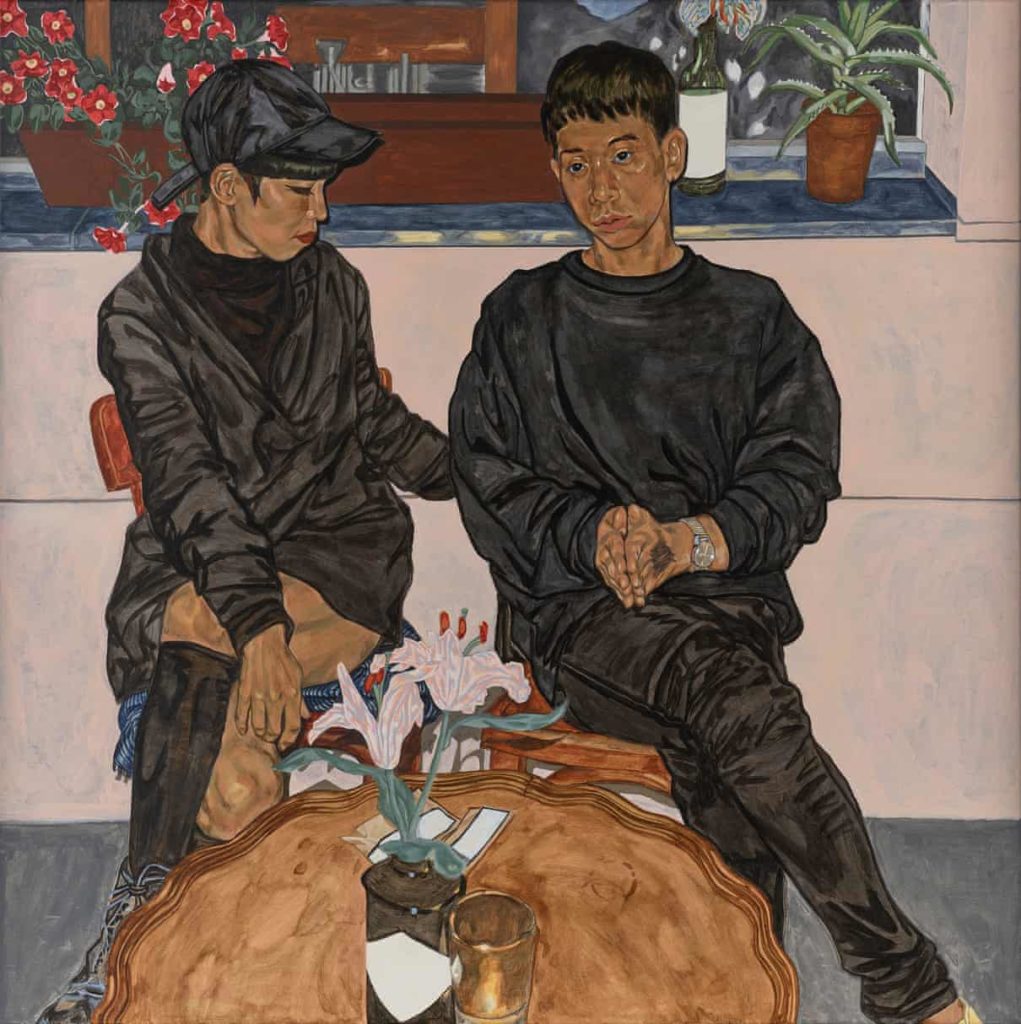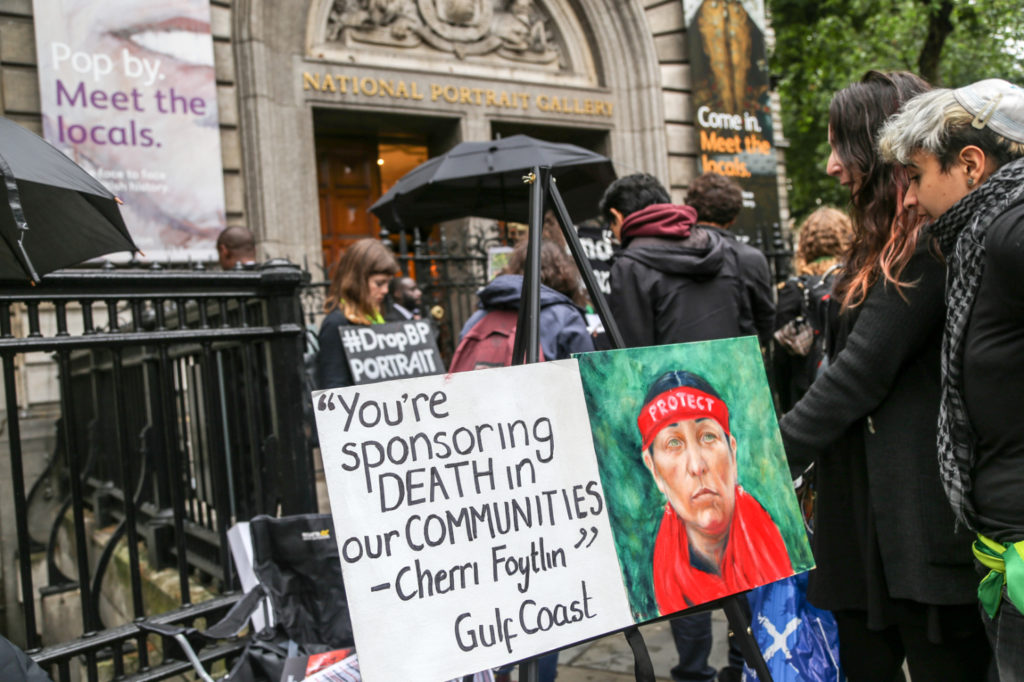Politics
A Self-Taught Thai Artist Has Won the 2020 BP Portrait Award—Which, for the First Time in Two Decades, BP Is No Longer Judging
Some advocates say the reshuffling of the jury does not go far enough.

Some advocates say the reshuffling of the jury does not go far enough.

Sarah Cascone

Self-taught artist Jiab Prachakul has been named the winner of the 2020 BP Portrait Award at London’s National Portrait Gallery—a decision that, for the first time since 1997, the oil giant had no part in.
The Thailand-born artist’s piece, Night Talk, is a moody depiction of two chic friends in a Berlin bar. It bested 1,981 entries from 69 countries, including runner-up Sergey Svetlakov and third-place winner Michael Youds, who works as a gallery attendant at the National Galleries of Scotland. In addition to receiving the £35,000 ($43,555) prize, Prachakul—who took up painting after seeing a David Hockney show at the National Portrait Gallery—will paint a new £7,000 ($8,700) commission for the museum.
But perhaps more notable than the winner was the process by which she was chosen. The NPG contends that the decision to remove Des Violaris, BP’s head of art, culture, and sport, from the jury was not influenced by ongoing pushback against the sponsorship. Two members of the award’s six-person panel change each year. “The gallery and BP jointly agreed not to have a sponsor representative on the judging panel this year,” the museum told the Guardian.
But Culture Unstained, which has been advocating for the NPG to cut ties with the oil giant, contends that the move is “no coincidence.” The reshuffle comes after former Turner Prize winners and a-listers such as Anish Kapoor, Sarah Lucas, and Christian Marclay penned an open letter encouraging the museum to sever the relationship and another group, BP or Not To BP?, protested the 2019 exhibition. (At the award ceremony, demonstrators blocked the entrance to the galleries, forcing VIP guests to climb over a wall to get inside the museum.)
For artist Gary Hume, one of the award’s 2019 judges, the removal of BP from the jury is a step in the right direction, but is not nearly enough. “The NPG should have bitten the bullet and used the opportunity of the prize going digital and the gallery closing for three years to cut its ties with BP, following the lead of other cultural institutions,” he said in a statement issued by Culture Unstained. “The board need to realize that they are now seriously out of step, and damaging the NPG’s reputation by maintaining a partnership with one of the world’s worst polluters in the midst of a climate crisis.”
Other British cultural institutions have bowed to public pressure in the recent years and stopped accepting money from oil companies. London’s Tate museum ended a 26-year sponsorship agreement with the company in 2017 following a string of high-profile protests. The Royal Shakespeare Company followed suit this past October, cutting short its contract with BP. Days later, the National Theatre ended its partnership with oil giant Shell, and the Southbank Centre announced in March that it would not renew Shell’s corporate membership.

Zora Owen painted a portrait of Cherri Foytlin, Indigenous journalist and advocate against BP’s catastrophic Deepwater Horizon disaster in 2010, outside the National Portrait Gallery in London protesting the 2019 BP Portrait Award ceremony. Photo by Diana More, courtesy of BP or Not BP?.
In November, the National Galleries of Scotland withdrew from the tour of the BP Portrait Award exhibition, as long as BP remained the prize’s sponsor. “We recognize that we have a responsibility to do all we can to address the climate emergency,” said the museum in a statement. “For many people, the association of this competition with BP is seen as being at odds with that aim.” (It remains to be seen if the British Museum will renews its contract with BP, which set to expire 2022, after a number of protests.)
The winner of this year’s BP Portrait Award has not weighed in on the controversy. “I’m totally dazzled!” wrote Prachakul on Instagram. “Thank you from my heart.”
The judges praised her work, calling it “an evocative portrait of a fleeting moment in time, giving us a glimpse into someone else’s life that is “beautiful, mysterious, and alive.”
Due to the ongoing closure of the museum in response to the global pandemic, the 48 paintings in this year’s exhibition are on view in an online exhibition.